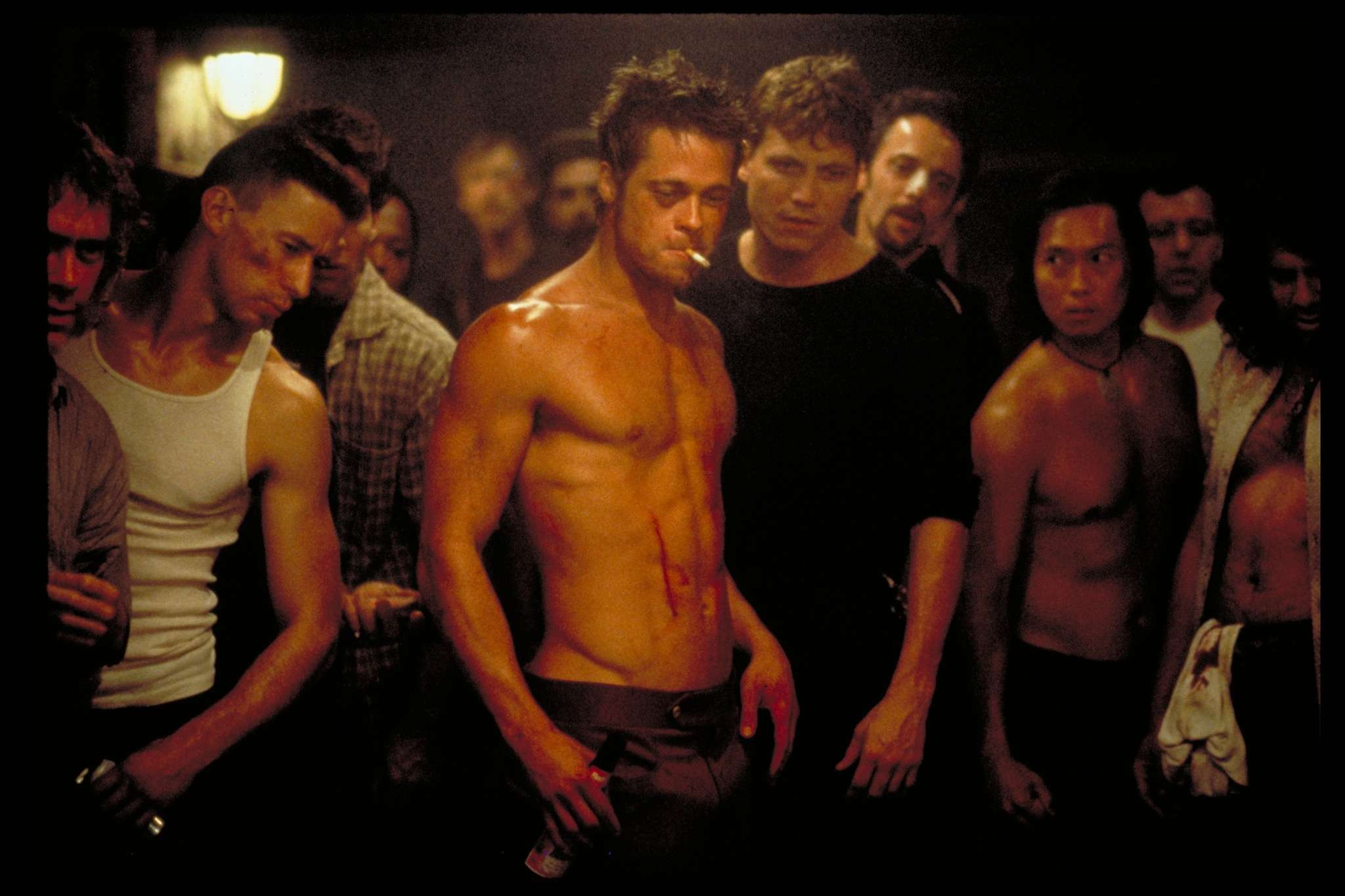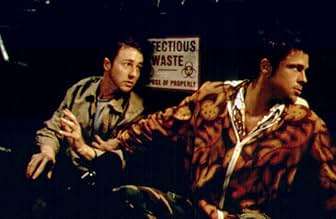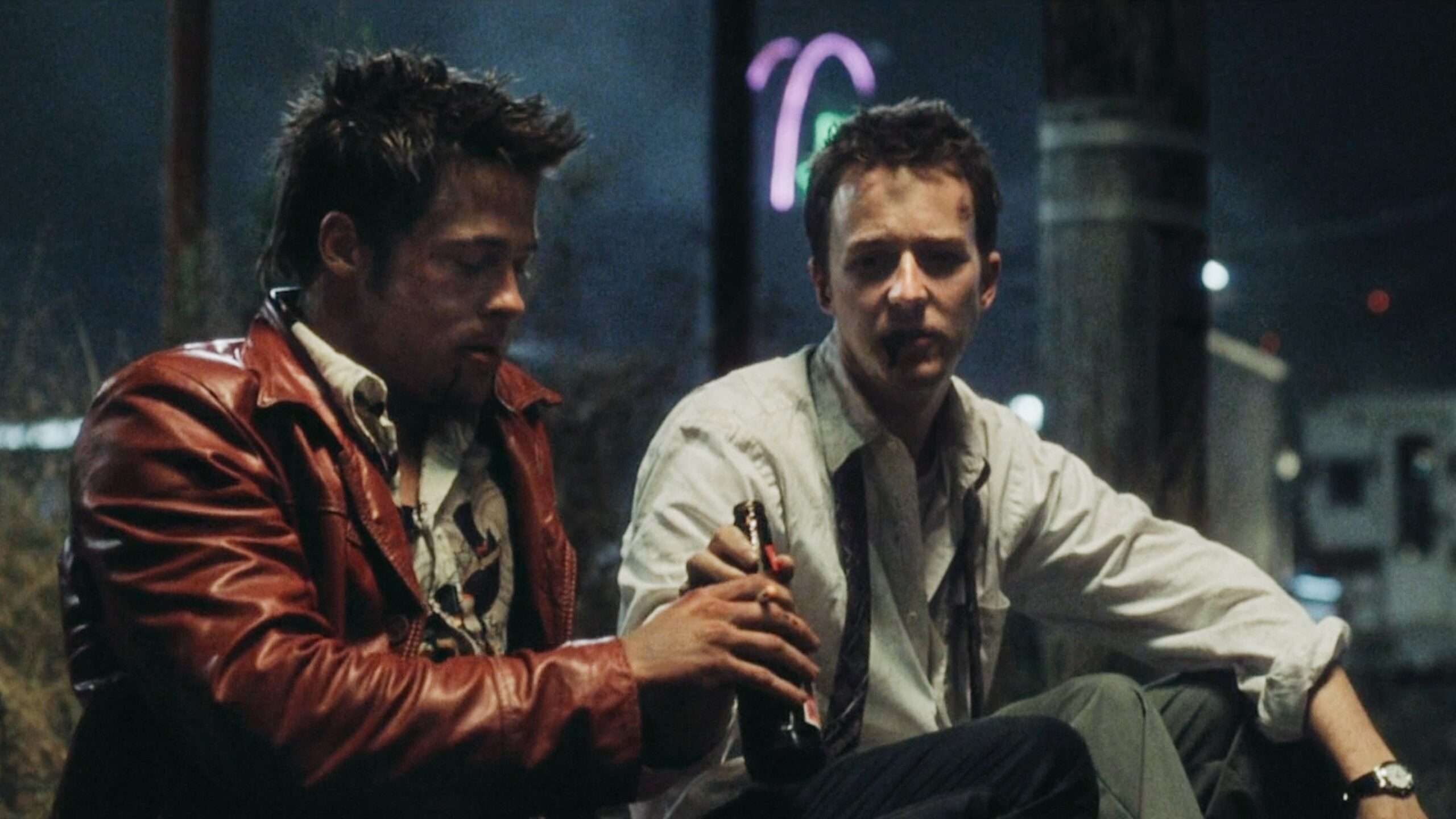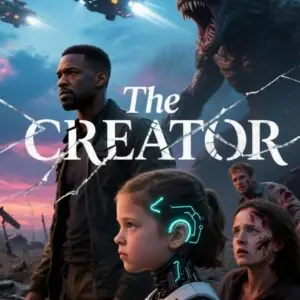By James Thorne, Film Critic
There are films that entertain, films that provoke, and then there’s Fight Club—a movie that grabs you by the throat, punches you in the gut, and leaves you questioning everything you thought you knew about masculinity, consumerism, and sanity. David Fincher’s 1999 adaptation of Chuck Palahniuk’s novel isn’t just a cult classic; it’s a feral, anarchic masterpiece that has lost none of its power 25 years later.
The Premise: Insomnia, Chaos, and Self-Destruction
Edward Norton stars as The Narrator, a nameless, disillusioned office drone drowning in the emptiness of corporate life. Suffering from chronic insomnia, he finds temporary relief in support groups for terminal illnesses—until he meets Marla Singer (Helena Bonham Carter), a fellow “tourist” who ruins his emotional grift. Then comes Tyler Durden (Brad Pitt), a soap-selling anarchist who becomes his mentor in chaos.

Together, they create Fight Club—an underground brawling ring where men beat each other bloody to feel alive. But what starts as primal therapy soon spirals into Project Mayhem, a domestic terrorist movement bent on dismantling civilization itself.
Why It Still Hits Like a Sledgehammer
1. A Prophetic Critique of Consumerism
Fight Club’s rage against “the IKEA nesting instinct” and “generation of men raised by women” feels even more relevant today. In an age of influencer culture, political disillusionment, and manufactured outrage, Tyler Durden’s rants about “working jobs we hate to buy shit we don’t need” sting harder than ever.

2. Brad Pitt’s Career-Defining Performance
Pitt’s Tyler Durden is charisma incarnate—a Nietzschean superman who seduces the audience just as he seduces The Narrator. His philosophy is toxic, his methods monstrous, but damn if he doesn’t make self-destruction look cool.
3. The Greatest Twist in Film History
Even if you know the mind-blowing third-act revelation, it still lands like a knockout punch. Fincher’s direction—full of subliminal flashes and eerie clues—rewards repeat viewings.
4. The Soundtrack & Visual Style
The Dust Brothers’ pulsing, industrial score and Fincher’s gritty, green-tinted cinematography make every frame feel like a bruise. The film’s aesthetic—dirty, raw, and hyper-stylized—has been imitated endlessly but never replicated.
The Controversy: Misunderstood or Dangerous?
Fight Club was misinterpreted by some as a glorification of toxic masculinity—a reading that ignores its scathing satire. Tyler Durden isn’t a hero; he’s a cult leader, and Fight Club is a cautionary tale about the allure of extremism.
Yet, the film’s nihilistic humor and “you are not special” ethos have resonated with alienated men for decades—sometimes in troubling ways. It’s a testament to Fincher’s genius that Fight Club can be both a warning and a weapon.
The Verdict: One of the Greatest Films Ever Made

25 years later, Fight Club remains a vicious, exhilarating, and deeply intelligent work of art. It’s a film that demands a reaction—whether it’s shock, anger, or uncomfortable self-recognition.
★★★★★ (5/5) – A flawless, ferocious classic.
“You are not your job. You are not how much money you have in the bank. You are not the contents of your wallet.”
But are you willing to destroy it all to find out who you really are?
What do you think?
-
Is Fight Club a masterpiece or a dangerous fantasy?
-
Does Tyler Durden have a point, or is he full of it?
-
Has the film aged well, or does it belong in the past?
Let’s start a fight (club) in the comments. First rule: You do talk about Fight Club





